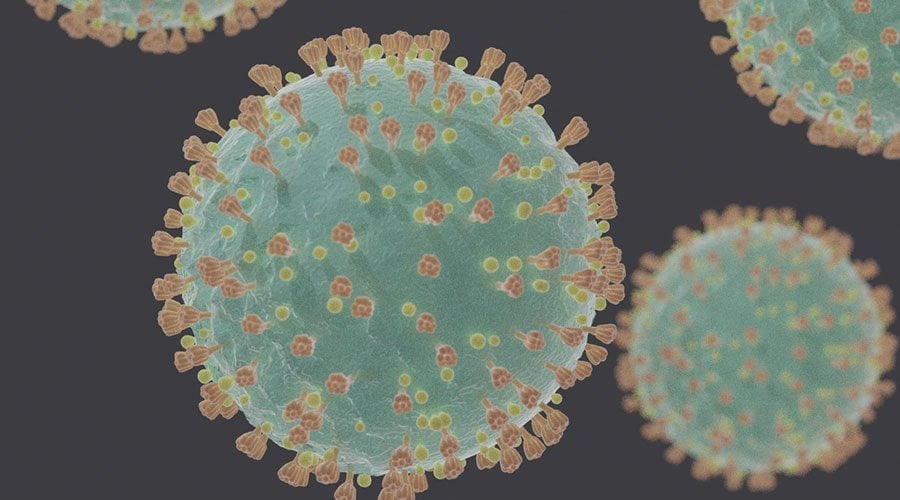How is the COVID-19 virus evolving?
7 May 2020 London School of Hygiene & Tropical Medicine London School of Hygiene & Tropical Medicine https://lshtm.ac.uk/themes/custom/lshtm/images/lshtm-logo-black.png
Coronavirus SARS-CoV-2. Credit: Felipe Esquivel Reed - Creative Commons
A new analysis of the worldwide effort to sequence the coronavirus genome has revealed the scale of the genetic changes that are occurring in the virus known as SARS-CoV-2, as it spreads across the world. These changes have important implications for molecular diagnostics and potentially vaccine success.
Led by the London School of Hygiene & Tropical Medicine, the research identified several mutations that show adaptation, where the virus has selected changes, probably as a result of improved ability for human transmission. These mutations could also impact whether vaccines or drugs will work to kill the virus.
While mutations, or ‘viral variants’, are often seen in viruses, usually a result of tiny errors during the DNA replication process that do not change the virus ability to survive. The mutations identified by the LSHTM team are different in that they have occurred simultaneously around the world, indicating that they give the virus an advantage.
Although we do not know what that advantage is yet, the researchers say that they should be monitored closely in case they affect therapies or vaccines to combat the virus or are making the virus more aggressive. If they are, we will need to adapt our diagnostics to detect them.
Using a genetic analysis technique, the researchers analysed the genetic mutations across more than 5,000 viruses from around the world. They were looking for patterns of evolution which indicate that the virus may have adapted to its human host.
The suggest the virus could now be classified into two groups with similar genetic material or ‘genetic clusters’. These different strains have different prevalence in individual countries, which may mean that diagnostics may have different performance in each country.
Professor Martin Hibberd from LSTHM said: “Overall, the virus does not seem to have mutated very much and most strains are relatively similar to each other. This suggests that the virus is well adapted to humans and is not changing rapidly.
“However, while the number of genetic variations at this stage of the pandemic were relatively small, we have seen a few that look important to the virus and these could have important implications for diagnostics, vaccines and therapies.”
Continued surveillance of the virus is required to track how it is adapting, and where in the world these adaptations are appearing, to monitor whether these mutations could also change the virus’ characteristics, and potentially virulence or transmissibility.
***This study has not been peer reviewed***
Publication
J. Phelan, W. Deelder, D. Ward, S. Campino, M.L. Hibberd, T.G. Clark. Controlling the SARS-CoV-2 outbreak, insights from large scale whole genome sequences generated across the world. BioRxiv pre-print. DOI: 10.1101/2020.04.28.066977
If you enjoyed this article and would like to build a career in global health, we offer a range of MSc programmes covering health and data, infectious and tropical diseases, population health, and public health and policy.
Available on campus or online, including flexible study that works around your work and home life, be part of a global community at the UK's no.1 public health university.